The Office of Faculty Affairs, in collaboration with the Office of Healthcare Equity, offer programming to support our underrepresented in medicine and science (URMS) faculty across all departments. We are investing in this important work to ensure the success, retention, and recruitment of URMS faculty, and to realize the UW Medicine mission of an anti-racist institution that maximizes the potential of all faculty to improve the health of the public. By actively supporting the success of our URMS faculty through collaborations and building community, we will be able to strengthen retention and bolster recruitment.
Success for Underrepresented Faculty (SURF) Program
SURF is a small-group 10-month program focused on career development, coaching, and peer co-learning.
Over the year-long program, we cover topics important to career navigation, productivity, mentor and leader relationships, and future planning. Participants commit to attend monthly 90-minute group meetings, monthly 1:1 coaching support in the critical early phases of career development, as well as two half-day career development seminars. We currently accept up to 15 faculty per cycle. Please contact Dr. Michelle Terry at mterry@uw.edu or Kat McGhee Drummond kmcghee@uw.edu with questions about SURF.
Applications for the 2025-2026 program are now closed.
Committee on Minority Faculty Advancement (CMFA)
The Committee on Minority Faculty Advancement is committed to supporting faculty from underrepresented groups in medicine and the biomedical sciences (URGMBS) by addressing the professional advancement needs, advocating and facilitating the dissemination of knowledge and skills, and providing resources necessary to achieve successful advancement of careers in academic medicine at the University of Washington. In addition, this committee will highlight the unique needs of URM faculty to aid in the recruitment, retention, and promotion of URM faculty, to increase the diversity of the medical school faculty.
Find news and opportunities, resources, events, and information on how to join.
2024-2025 SURF Cohort
 Noha Aboueldahab, MBBCh Radiology
Noha Aboueldahab, MBBCh Radiology
Dr. Aboueldahab is an Assistant Professor in the Department of Radiology. Dr. Aboueldahab’s clinical practice includes all aspects of Nuclear Medicine and Molecular imaging including general nuclear medicine, PET CTs, and procedures. Her research interest is mainly in molecular brain imaging.
 Meagan Alvarado, MD Medicine, Gastroenterology
Meagan Alvarado, MD Medicine, Gastroenterology
Dr. Meagan Alvarado is an Assistant Professor at the University of Washington with board certifications in internal medicine and gastroenterology, and board-eligible for transplant hepatology. She is the Medical Director of Northwest Hepatology and a core faculty member for the gastroenterology fellowship. She has an interest in medical education and completed a certified medical education focus during her residency.
She also has an interest in health care disparities, creating curriculum for internal medicine residents and performing research in disparities in liver transplant outcomes. Her additional clinical interests include autoimmune related liver diseases, and Hereditary Hemorrhagic Telangiectasia for which she is part of the multidisciplinary HHT team at the UW. Dr. Alvarado aims to foster open communication and trust with her patients, by addressing internal and external stigma associated with liver conditions and providing education and resources that are necessary to take an active role in their own health management.
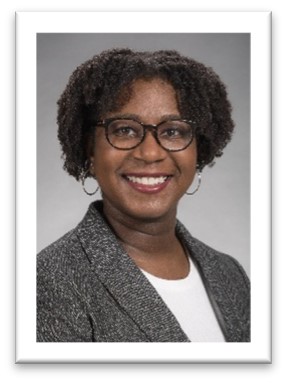 Lyndsey Booker, MD Rehabilitation Medicine
Lyndsey Booker, MD Rehabilitation Medicine
Lyndsey Booker is an Assistant Professor of Clinical Practice in the Department of Rehabilitation Medicine, Division of Sports and Spine. She completed her PM&R residency at UW and sports medicine fellowship at the University of Utah. She currently works at UW Husky Stadium Sports Medicine Center and the Sports Medicine Center at HMC. She is also the associate program director for the PM&R sports medicine fellowship. Lyndsey has an interest in enhancing diversity in sports medicine as well as fostering a safe and inclusive environment for education and sports participation.
 Justin Bullock, MD, MPH Medicine, Nephrology
Justin Bullock, MD, MPH Medicine, Nephrology
Justin Bullock is an Assistant Professor in Nephrology at the University of Washington School of Medicine and the Co-director of the Docs with Disabilities Initiative. Justin’s research agenda focuses on how educators can create identity safe learning environments where everyone in the hospital is able to bring their authentic selves to work in the spirit of healing. Justin is a passionate medical educator: a teacher, researcher, and lifelong learner.
In addition to his education scholarship, Justin is outspoken about his lived experience as a gay Black bipolar physician. His work and story have been featured in the New England Journal of Medicine, Academic Medicine, Vox and Forbes among others. Drawing on his dual identities as a patient and provider with serious illness, Justin believes deeply that medicine is a lifelong journey of healing as much for providers as it is for patients.
 Angela Castellanos, MD, MSc Nuclear Medicine
Angela Castellanos, MD, MSc Nuclear Medicine
Angela Castellanos is Assistant Professor of Nuclear Medicine at the University of Washington. Angela is passionate about translational and clinical research focused on novel technologies. Originally from Bogotá, Colombia, where she earned her MD. Dr Castellanos Rieger moved to the United Kingdom, where she completed an MSc in Nanotechnology and Regenerative Medicine at University College London, followed by a post-doctoral fellowship at the University of Miami Miller School of Medicine. In this role, she worked on various large animal models and clinical trials of ischemic and non-ischemic cardiomyopathies. During her residency in Nuclear Medicine at UCLA, Dr. Castellanos R. developed a keen interest in theragnostic and molecular imaging, which shaped her clinical and research pathway.
 Samira Farah, MD Family Medicine
Samira Farah, MD Family Medicine
Dr. Samira Farah is an Assistant Professor in the Department of Family Medicine at the University of Washington. She is the Director of the Family Medicine Interest Group (FMIG) and the Underserved Pathway. In addition, Dr. Farah works clinically at Harborview Family Medicine Clinic. She completed her residency at Valley Family Medicine Residency Program.
 Dominique Feterman Jimenez, MD Medicine, Rheumatology
Dominique Feterman Jimenez, MD Medicine, Rheumatology
Dr. Feterman is a Clinical Assistant Professor based at Harborview Medical Center. She was born and raised in Guatemala City, Guatemala, where she attended medical school. After graduating, she decided to stay as an assistant instructor for two years to explore her passion for teaching. She then completed her residency at the University of Connecticut, where she did a graduate course in medical education and expanded her interest in addressing health disparities and social determinants of health. Her major career interests include developing medical education initiatives, working with underserved populations, and doing clinical research. Outside of medicine, she enjoys cooking, pottery, and Peloton workouts.
 Chenara Johnson, MD, PhD Bioengineering
Chenara Johnson, MD, PhD Bioengineering
Dr. Chenara Johnson is a board-certified diagnostic radiologist and PhD-trained bioengineer whose career is defined by service and education. As Clinical Assistant Professor of Emergency Radiology, she interprets high-acuity imaging across three Seattle hospitals while mentoring residents and fellows. Her clinical work is complemented by case-based lectures that sharpen diagnostic acumen for both radiology and emergency medicine trainees. She also contributes nationally through the American Society of Emergency Radiology’s fellowship committee.
Building on this academic foundation, Chenara’s background in device development and engineering brings a systems-level approach to medicine that focuses on workflow efficiency and broadly applicable solutions. Her technical lens, combined with her work as a radiology consultant/expert witness, enables her to translate complex imaging into actionable insights while seeking to advance solutions for medicolegal risk reduction.
 Dong-Woo Kang, PhD, CEP Epidemiology, Public Health Sciences Division, Fred Hutch Cancer Center
Dong-Woo Kang, PhD, CEP Epidemiology, Public Health Sciences Division, Fred Hutch Cancer Center
Dr. Kang completed his PhD in kinesiology and behavioral medicine at the University of Alberta and postdoctoral/instructorships in exercise oncology at Dana-Farber Cancer Institute and Harvard Medical School. His research focuses on exploring how exercise can improve cancer outcomes through biological mechanisms such as immune modulation, with a particular interest in treatment efficacy, reducing toxicity, and disease progression. As a first-generation immigrant and college graduate, Dr. Kang is also committed to advancing health equity by improving access to supportive care interventions for underrepresented cancer populations and mentoring trainees with similar backgrounds. Outside of work, he enjoys running, tennis, and being outdoors.
 Erik Kimble, MD Medicine, Hematology & Oncology, Fred Hutch Cancer Center
Erik Kimble, MD Medicine, Hematology & Oncology, Fred Hutch Cancer Center
Dr. Kimble is a physician and researcher who sees patients at the South Lake Union Clinic. He completed his training in hematology and oncology through the Fred Hutch Cancer Center and University of Washington School of Medicine Fellowship Program. He specializes in caring for patients receiving cellular immunotherapies for blood cancers such as leukemia and lymphoma. His research lab at Fred Hutch is focused on optimizing CAR T-cell therapies for acute myeloid leukemia and other diseases.
 Natasha Kwendekwema, MD Medicine, Hematology & Oncology
Natasha Kwendekwema, MD Medicine, Hematology & Oncology
Dr. Kwendakwema is an Assistant Professor in the Division of Hematology and Oncology at the University of Washington and Fred Hutch Center. Clinically, she treats patients with breast cancer. Her research interests include the understanding and improving the economics of cancer care, improving access to quality cancer care, and patient reported outcomes in breast cancer. Outside of work, she enjoys traveling, exploring new restaurants, reading, and spending time with her family.
 Suzanne McDermott, PhD Pediatrics, Infectious Diseases
Suzanne McDermott, PhD Pediatrics, Infectious Diseases
Dr. Suzanne McDermott is an Assistant Professor in the Division of Infectious Disease, Department of Pediatrics at the University of Washington School of Medicine, working within Seattle Children’s Research Institute (SCRI). Originally from the UK, she completed her PhD in molecular and developmental biology at the University of Edinburgh. She then moved to Seattle for postdoctoral training and subsequent scientist positions at Seattle Biomedical Research Institute, which became part of the Center for Global Infectious Disease Research at SCRI. Dr. McDermott’s research explores the unique molecular & developmental biology of protozoan parasites such as trypanosomes that cause global disease, human host immune responses to their vaccination and infection, and the advancement of technologies to study both pathogen development and host responses. Infections with these parasites can be difficult to diagnose, there are no vaccines, and approved drugs can have severe side effects and limited efficacies, so the goal of this research is to generate a deep understanding of pathogen drug targets and human immunity that will inform the development of new therapeutics, diagnostics, and vaccines. Dr. McDermott also teaches in the Pathobiology Graduate Program at the University of Washington Department of Global Health. Outside the lab and classroom, she enjoys hiking, diving, dancing, playing old time fiddle music and spending time with her two pups.
 Ceasar Montalvo, PhD Institute for Health Metrics & Evaluation
Ceasar Montalvo, PhD Institute for Health Metrics & Evaluation
Cesar Montalvo serves as an Acting Assistant Professor at the Institute for Health Metrics and Evaluation (IHME) at the University of Washington. He is a member of the US Health Disparities research team. His research is centered on quantifying the non-fatal burden of disease in the United States at the county level, and by race and ethnicity by applying small area estimation methods for generating prevalence, incidence, and years lived with disability (YLDs) for a range of health conditions.
Prior to his current role at IHME, Cesar was a Research Assistant Professor at the Biocomplexity Institute at the University of Virginia. He contributed to projects related to food insecurity, health, the skilled technical workforce, and social mobility. With expertise in mathematical and statistical modeling as well as public health, his work has focused on health metrics, access, affordability, and adequacy of health services, social determinants of health, and small area estimates.
Cesar holds a master’s degree in economics from Iowa State University and a Ph.D. in Applied Mathematics from Arizona State University. His professional experience includes advisory roles within the government of Ecuador, where he provided counsel to the President. He has taught at various universities in the United States, the Czech Republic, and Ecuador. Additionally, he has mentored students at the Mathematical Theoretical Biology Institute at Arizona State University and the Data Science for the Public Good program at the University of Virginia. Cesar is driven by a strong motivation to carry out research and practice aimed at addressing inequality and alleviating poverty.
 Tenzin Ngodup, PhD, MS Otolaryngology
Tenzin Ngodup, PhD, MS Otolaryngology
Dr. Tenzin Ngodup is an Assistant Professor at the Virginia Merrill Bloedel Hearing Research Center and Department of Otolaryngology Head & Neck Surgery at the University of Washington School of Medicine. His research focuses on how the brain processes sound signals, with an emphasis on the early auditory brain centers involved in hearing. He investigates the various cell types, their connections, and how they communicate with each other. Ultimately, this research aims to advance our understanding of the neural basis of hearing and may lead to improved diagnosis and treatment of auditory disorders like tinnitus, hyperacusis, and speech processing impairments.
 Anthony Osuna, PhD Pediatrics, General Pediatrics
Anthony Osuna, PhD Pediatrics, General Pediatrics
Dr. Anthony Osuna (he/him) is an Acting Assistant Professor in the Department of Pediatrics (Division of General Pediatrics) at the University of Washington. He is a licensed clinical psychologist who provides care through Odessa Brown Children’s Clinic (OBCC) and conducts research at the Center for Child Health, Behavior, and Development at Seattle Children’s Research Institute. Dr. Osuna’s clinical and research interests center on digital health equity for autistic individuals and people with intellectual and developmental disabilities (IDD). He uses community-based participatory research (CBPR) methods to co-develop and evaluate interventions that promote safe and inclusive online engagement. His current work involves piloting an internet safety program for adults with IDD in collaboration with community organizations, with future plans for multi-site trials and the integration of AI-enhanced tools.
 Dornell Pete, PhD, MPH Epidemiology, Fred Hutch Cancer Center
Dornell Pete, PhD, MPH Epidemiology, Fred Hutch Cancer Center
Dr. Dornell Pete is a tribal member of the Navajo Nation and an Assistant Professor in the Epidemiology Program at the Fred Hutchinson Cancer Center. She has worked with numerous tribal nations and organizations, including the Urban Indian Health Institute, the Albuquerque Area Southwest Tribal Epidemiology Center, and the Navajo Epidemiology Center. She utilizes community-engaged research approaches to investigate the causes of stomach cancer, including lifestyle, environmental, and pathogenic factors (e.g., Helicobacter pylori infections and gut microbiome) in Native American communities. Her research aims to identify cancer prevention strategies and enhance gastrointestinal health for Native American populations.
2024-2025 Cohort
 Ovuokerie Addoh, MBBS, PhD Rehabilitation Medicine
Ovuokerie Addoh, MBBS, PhD Rehabilitation Medicine
Dr. Ovuokerie Addoh is an Assistant Professor of Rehabilitation Medicine at the University of Washington School of Medicine. Originally from Nigeria, he completed medical school there before earning a PhD in Health and Kinesiology in Mississippi and completing his residency in Minnesota. As a physician-scientist, Dr. Addoh divides his time between research, clinical duties, teaching, and service. He serves as an attending physician in both the inpatient and outpatient rehabilitation units at Harborview Medical Center, specializing in stroke care. His research focuses on implementing digital metrics for physical activity in stroke rehabilitation. He aims to foster a supportive community that amplifies marginalized voices and drives positive change for a more inclusive academic environment.
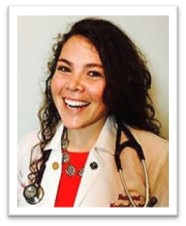 Alexis Ball, MD, MPP Pediatrics (General Pediatrics)
Alexis Ball, MD, MPP Pediatrics (General Pediatrics)
Dr. Alexis Ball is a primary care pediatrician at the Odessa Brown Clinic. She completed her pediatric residency at the University of Colorado and has a master’s in public policy. Her research interests include the impact of addiction on children and youth with a focus on BIPOC communities with the goal of addressing disparities and bringing community driven solutions upstream to policy.
 Anthony Bui, MD, MPH Pediatrics (General Pediatrics)
Anthony Bui, MD, MPH Pediatrics (General Pediatrics)
Dr. Anthony Bui (he/him) is an Acting Assistant Professor in the Department of Pediatrics (Division of General Pediatrics) at the University of Washington. A primary care pediatrician focused on migrant health, Dr. Bui teaches and practices at Harborview Pediatrics Clinic and is an investigator at the Seattle Children’s Research Institute, Center for Child Health, Behavior, and Development. His research focuses on tackling mental health disparities among youth of immigrant origin, with a focus on Asian American youth. His current work aims to understand and address barriers to mental healthcare among Vietnamese American youth utilizing population health research, community-engaged research, and intervention design. He also conducts research related to healthcare spending, childhood adversity, and community safety.
 Brittney Graham, DO, FCAP, MAJ USA Lab Medicine and Pathology
Brittney Graham, DO, FCAP, MAJ USA Lab Medicine and Pathology
Dr. Graham is an Assistant Clinical Professor in the Department of Laboratory Medicine and Pathology. She practices Anatomic and Clinical Pathology at Madigan Army Medical Center. She enjoys transfusion medicine and serves as the Medical Director of Transfusion Services and the Armed Services Blood Bank Center Pacific Northwest. Dr. Graham has a keen interest in diversity within the military pathology community, healthcare efficiency and access for soldiers and department of defense beneficiaries, and leadership within military medicine.
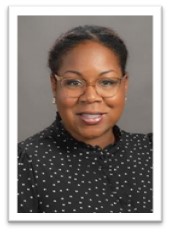 Nicole Jackson, MD, MPH Lab Medicine and Pathology
Nicole Jackson, MD, MPH Lab Medicine and Pathology
Dr. Nicole Jackson recently joined the University of Washington as an Assistant Professor and Director of Autopsy & After Death Services for UW Med in the Department of Laboratory Medicine & Pathology where she is also Chair of the Justice, Equity, Diversity, and Inclusion Committee. Previously, she served as a Medical Examiner for Chicago and Seattle. Regionally, she serves on the Washington State Maternal Mortality Review Panel and nationally she is the past President of the Society of Black Pathology and a forensic pathology consultant for the Sudden Unexplained Death in Childhood Registry & Research Collaborative. Her career interests include deaths in vulnerable populations, medical education, quality improvement, mentoring, community outreach, workforce development, health disparities, increasing pathologists’ visibility, and reducing preventable deaths.
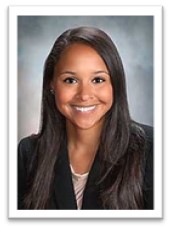 Kristine Karvonen, MD, MS Pediatrics (Hematology and Oncology)
Kristine Karvonen, MD, MS Pediatrics (Hematology and Oncology)
Dr. Kristine Karvonen, MD, MS is an acting instructor in the Department of Pediatric Hematology/Oncology at University of Washington. Her research focuses on identifying and eliminating racial and ethnic health care disparities experienced by pediatric, adolescent and young adult cancer patients. Specifically, she studies how social drivers of health including racism leads to inferior outcomes for historicaly marginalized patients including survival and patient reported outcomes.
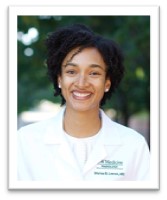 Marissa Lawson, MD, MS Radiology
Marissa Lawson, MD, MS Radiology
Dr. Marissa Lawson is an Assistant Professor and physician-scientist in the Department of Radiology. Dr. Lawson’s clinical practice includes all aspect of breast imaging including mammography, ultrasound, MRI, and image-guided procedures. Her research focuses on understanding racial and ethnic and socioeconomic disparities in the breast imaging care delivery and their impact on breast cancer outcomes.
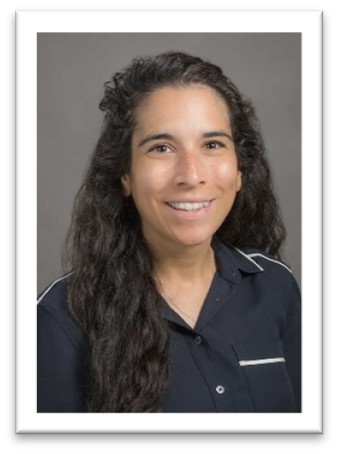 Felicia Mata-Greve, PhD Rehabilitation Medicine
Felicia Mata-Greve, PhD Rehabilitation Medicine
Dr. Felicia Mata-Greve, PhD is an attending psychologist at Harborview Medical Center on the rehabilitation psychology consult service and inpatient rehab. Her research focuses on intersectionality and racial and ethnic health disparities. Clinically, she works with individuals experiencing acute trauma and adjustment to injury. She also provides supervision and teaching to residents and fellows in UW’s psychology internship program.
 Cody McDonald, PhD, MPH, LCPO Rehabilitation Medicine
Cody McDonald, PhD, MPH, LCPO Rehabilitation Medicine
Dr. Cody McDonald (she/her) is an Assistant Professor in the Department of Rehabilitation Medicine. She teaches and conducts research in the Division of Prosthetics and Orthotics. Dr. McDonald grew up in a rural community in southwestern Washington. Her line of research blends participatory and qualitative research methods with outcome measure development
and health equity. Using these methods, she strives to center the needs, priorities, and perspectives of individuals with physical impairments to guide the development and application of health-related outcome measures. Dr. McDonald is also passionate about teaching and mentoring the next generation of clinicians and researchers, particularly those who come from disadvantaged backgrounds.
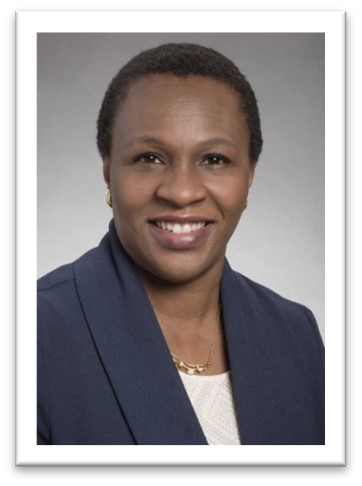 Adewunmi Nuga, MD, PhD Medicine (General Internal Medicine)
Adewunmi Nuga, MD, PhD Medicine (General Internal Medicine)
Dr. Adewunmi Nuga is a Clinical Instructor in the Department of Medicine (Division of General Internal Medicine). She works clinically as a Primary Care Physician (Primary Care and Population Health) at the UW Medicine Clinic in Kirkland, where she is also the Clinic Medical Director. In addition to this, she serves in the role of Physician Lead for equity, diversity and inclusion for the UW primary care network. She is board certified in both pediatrics and internal medicine. Her goal as a physician is provide comprehensive, compassionate, evidence-based care for all of her patients, and she is enthusiastic about mentoring future healthcare providers.
 Devasena Ponnalagu, MD, PhD Pharmacology
Devasena Ponnalagu, MD, PhD Pharmacology
Dr. Devasena Ponnalagu is an Assistant Professor at the Department of Pharmacology. Following the completion of her PhD at the Indian Institute of Science, Bangalore, India, she pursued her post-doctoral training in the US at Drexel and The Ohio State University. She started her laboratory at UW in May 2023. The primary focus of her laboratory’s research is to understand how intracellular chloride channels govern the establishment and progression of metabolic disorders and associated cardiovascular diseases. She is dedicated to fostering a diverse, collaborative, and inclusive research environment in her laboratory, and is committed to supporting her mentees in achieving their scientific and career goals.
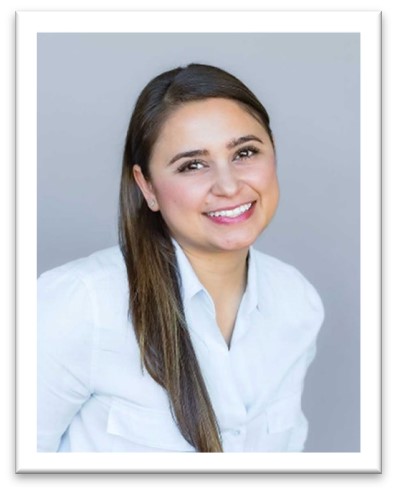 Christian Razo, MSc, PhD Health Metrics Sciences
Christian Razo, MSc, PhD Health Metrics Sciences
Dr. Christian Razo, MSc, PhD, is an Acting Assistant Professor in the Department of Health Metrics Sciences at the University of Washington’s School of Medicine and the Institute for Health Metrics and Evaluation (IHME). Her research focuses on cardiometabolic risk factors and the burden of non-communicable diseases in Latin America.
Originally from Mexico, Dr. Razo completed her PhD in Population Nutrition Sciences at the School of Public Health of Mexico. She then moved to UW for a postdoctoral fellowship in health metrics sciences, where she contributed to the Global Burden of Diseases, Injuries, and Risk Factors (GBD) Study. Her work involved developing new methods to analyze complex data on cardiovascular diseases and cardiometabolic risk factors, as well as exploring gynecological diseases and anemia.
 Murat Sadic, MD, PhD, AHM, FSASS, DABNM Radiology (Nuclear Medicine)
Murat Sadic, MD, PhD, AHM, FSASS, DABNM Radiology (Nuclear Medicine)
Dr. Murat Sadic is a Board-Certified academic nuclear medicine physician and an Associate Professor at the Division of Nuclear Medicine, University of Washington. He has been actively involved in clinical and investigative applications of nuclear medicine for more than 10 years. His main areas of interest include Therapeutic Nuclear Medicine and Theranostic-Individual Nuclear Therapy Applications as well as Molecular and Oncologic PET/CT Imaging with specific interests in cancer imaging. He believes that functional and molecular imaging modalities and individual theranostic applications hold the potential to offer distinctive insights into cancer behavior, thereby influencing treatment decisions. He recognizes the importance of fostering a diverse and inclusive environment that values and celebrates differences.
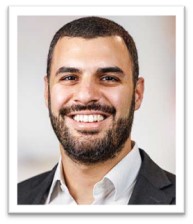 Ralph Tayyar, MD Medicine (Allergy and Infectious Diseases)
Ralph Tayyar, MD Medicine (Allergy and Infectious Diseases)
Dr. Tayyar is a Clinical Assistant Professor in the Division of Allergy & Infectious Diseases at the University of Washington and Fred Hutch Cancer Center, with a particular focus on immunocompromised infectious diseases. His research interests include antimicrobial stewardship and quality improvement. Growing up in a small town in Lebanon, he gained experience working with a range of racial, ethnic, gender, and socioeconomic groups through volunteer work. This fueled his passion for medical education and his aspiration to create a safe and inclusive environment for all patients and healthcare personnel.
 Ana P. Valencia, PhD Medicine (Metabolism, Endocrinology, and Nutrition)
Ana P. Valencia, PhD Medicine (Metabolism, Endocrinology, and Nutrition)
Ana P. Valencia, PhD is a Research Assistant Professor in the Division of Metabolism, Endocrinology and Nutrition at the University of Washington. Her research program spans translational and basic science addressing the role of mitochondrial energetics in the context of metabolic disease. Dr. Valencia’s research training includes degrees in Dietetics and Kinesiology, with a specialization in Exercise Physiology from the University of Maryland, and a postdoctoral fellowship focused on aging and mitochondrial metabolism at the University of Washington. Her current investigations address how mitochondria energetics adapt in response to nutritional stressors, and how these adaptations mediate cardiometabolic health and energy balance. Dr. Valencia is dedicated to fostering an inclusive and sustainable work environment that respects both one another and the planet.
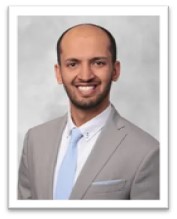 Hasib Yousufzai, MD Medicine (General Internal Medicine)
Hasib Yousufzai, MD Medicine (General Internal Medicine)
Dr. Hasib Yousufzai (he/him) is a Clinical Instructor in the Division of General Internal Medicine within the Department of Medicine and works primarily as a hospitalist at Harborview Medical Center. He is passionate about medical education through the lens of health equity and social and global justice. This has informed his career in Graduate Medical Education as one of the directors of the Health Equity Advocacy and Antiracism (HEAAR) Curriculum for the Internal Medicine Residency program. Outside of work, he spends his time climbing in the mountains, playing guitar, and tinkering in his woodshop.
2023-2024 Cohort
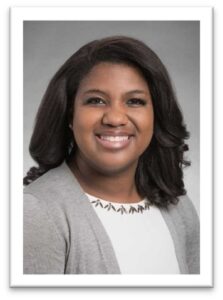 Ryan Abe, MD General Internal Medicine
Ryan Abe, MD General Internal Medicine
Dr. Ryan Abe (she/her) is an Acting Instructor in the Division of General Internal Medicine in the Department of Medicine and works clinically as a hospitalist at UW-Montlake. Her academic focuses are in teaching, mentorship, and health equity education. She directs the Health Equity Pathway for the Internal Medicine residency program and is a College Mentor in the School of Medicine.
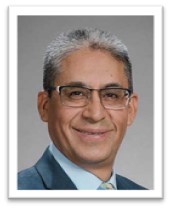 Oscar Bailon, MD Cardiology
Oscar Bailon, MD Cardiology
Dr. Oscar Bailon is a Clinical Assistant Professor in the Division of Cardiology at University of Washington – Northwest Hospital. Born in a small Andean village in Peru, he has overcome many challenges to achieve his dream of becoming a Cardiologist. He believes that best patient care outcomes are enhanced by incorporating patient preferences, needs and values. He is interested in further developing his leadership and mentorship skills to encourage underrepresented minority students to pursue academic careers and join Medicine.
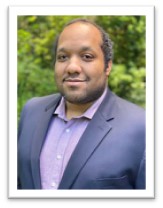
Timothy Brown, PhD Bioethics and Humanities
Dr. Timothy Brown joined the department of Bioethics and Humanities in July 2021 as an Assistant Professor. Dr. Brown works at the intersection of biomedical ethics, philosophy of technology, (black/latinx/queer) feminist thought, and aesthetics. His research explores the potential impact of neurotechnologies—systems that record and stimulate the nervous system—on end users’ sense of agency and embodiment. His work also interrogates neurotechnologies for their potential to exacerbate or create social inequities, in order to establish best practices for engineers. Finally, Dr. Brown’s approach to research is interdisciplinary, embedded, and relies on mixed methods; his work on interdisciplinary is aimed at encouraging deeper collaborations between humanists and engineers in the future.
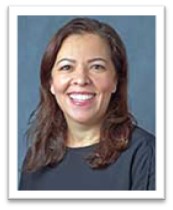 Karine Duarte Bojikian, MD, PhD Ophthalmology
Karine Duarte Bojikian, MD, PhD Ophthalmology
Dr. Duarte Bojikian is an Assistant Professor and physician-scientist in the Department of Ophthalmology. Her clinical interests include the surgical and medical management of standard and complex glaucoma and cataract cases, and her research focus on innovative ocular imaging modalities in the diagnosis and disease progression monitoring in glaucoma and healthcare disparities in ophthalmology care. Dr. Duarte Bojikian is the chair for the UW Ophthalmology Diversity, Equity, and Inclusion Committee and the Director for UW Ophthalmology Alumni Relations. She is also passionate about medical students’ and residents’ education, training, and mentoring.
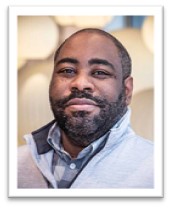 Myron Evans II, PhD Pediatrics, Hematology and Oncology
Myron Evans II, PhD Pediatrics, Hematology and Oncology
Dr. Myron Evans II is an Assistant Professor in the Department of Pediatrics (Division of Hematology/Oncology) at the University of Washington, Seattle. Dr. Evans is a Principal Investigator at Seattle Children’s Research Institute Ben Towne Center for Childhood Cancer Research and an Affiliate Associate Member at Fred Hutchinson Cancer Research Center in the Human Biology Division. His lab focuses on the genetic and epigenetic mechanisms underlying tumor initiation and progression in pediatric central nervous system (CNS) tumors, such as medulloblastoma and diffuse midline glioma. His laboratory also investigates basic mechanisms of mammalian CNS development to better design and test novel therapeutic interventions. Dr. Evans seeks to build a diverse and inclusive lab environment that encourages scientists from both traditional and non-conventional paths to excel.
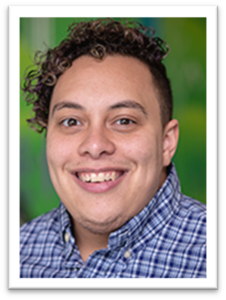 Connor Gallik, PhD Psychiatry and Behavioral Sciences
Connor Gallik, PhD Psychiatry and Behavioral Sciences
Dr. Connor Gallik, PhD, is the attending psychologist for the Adolescent Program on the Psychiatry and Behavioral Medicine Unit at Seattle Children’s Hospital and Acting Assistant Professor in the Department of Psychiatry and Behavioral Sciences at University of Washington. His research focuses on understanding factors related to the mental health and wellbeing of transgender and gender diverse (TGD) TGD youth and evidence-based practice on inpatient units. Clinically, he is interested in working with children, adolescents, and their families, with a focus on TGD youth. Dr. Gallik also provides training in TGD affirming care for mental health and medical professionals and speaks to community audiences about supporting transgender youth.
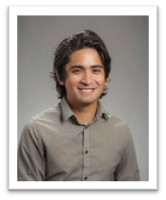 Marco Garcia, MD General Pediatrics
Marco Garcia, MD General Pediatrics
Dr. Marco Garcia is a Clinical Assistant Professor in the Division of General Pediatrics. His clinical interests focus on supporting the health and wellness of the LGBTQ+ community. He also has an interest in medical education and serves as a continuity clinic preceptor and a clinical coach for the pediatrics residency program.
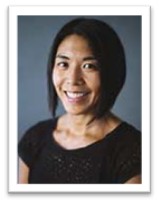 Sarah Galinato Gerrish, MD Family Medicine
Sarah Galinato Gerrish, MD Family Medicine
Dr. Sarah Galinato Gerrish is a full spectrum Family Physician whose passion lies in health care justice through community engagement, education, health empowerment, and identity equity. She recently joined the University of Washington School of Medicine as the Director of Curriculum Equity to further the mission of inclusive, representative, and anti-biased medical education. She is faculty at UW Family Medicine Resident Network and Full Circle Health Family Medicine Residency of Idaho Boise program where she founded, developed and teaches the Justice, Equity, Diversity and Inclusion longitudinal curriculum.
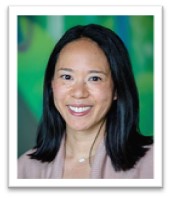 Angela Hernandez, MD Obstetrics and Gynecology
Angela Hernandez, MD Obstetrics and Gynecology
Dr. Hernandez is an Assistant Clinical Professor in the Department of Obstetrics and Gynecology. She practices Pediatric and Adolescent Gynecology at Seattle Children’s Hospital. She enjoys multi-disciplinary care and participates in the Reconstructive Pelvic Medicine and Differences of Sexual Development Clinics. She also started a Chronic Pelvic Pain multi-disciplinary clinic, which has been helped adolescents suffering with pelvic pain find hope and begin healing. She is passionate about providing equitable care for underserved patients.
 Abir Hussein, MD Allergy and Infectious Disease
Abir Hussein, MD Allergy and Infectious Disease
Dr. Abir “Abby” Hussein is a Clinical Assistant Professor in the department of Allergy & Infectious Disease. She also works in the School of Medicine as a College faculty mentor and in this role acts as a coach and provides the clinical foundation for an assigned group of medical students each year through their four years of training. Dr. Hussein is also the Associate Medical Director of Infection Prevention at UWMC – Montlake and helps shape and shift policies and practices related to hospital acquired infections and other concerns. She is passionate about clinical infectious disease work and medical education and mentorship as well as improving diversity, equity, and inclusion both in the hospital and in academia.
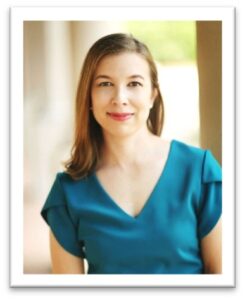 Clara Lampi, MD Pediatric Hospital Medicine
Clara Lampi, MD Pediatric Hospital Medicine
Dr. Clara Lampi is a Clinical Assistant Professor in the Department of Pediatrics, Division of Hospital Medicine. Her clinical sites include Seattle Children’s Hospital and Providence Everett. She is interested in the relationship and communication between tertiary medical facilities and community providers, as well as early mentoring and exposure to the healthcare professions for traditionally underrepresented groups.
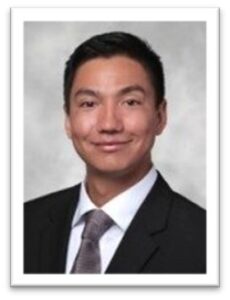 Joseph Nelson, MD Family Medicine
Joseph Nelson, MD Family Medicine
Dr. Joseph Nelson (he/him) is an enrolled member of the Confederated Tribes and Bands of the Yakama Nation and holds the title of assistant professor with the UW Department of Family Medicine. He is the inaugural Associate Program Director for Diversity, Equity and Inclusion with the UW Family Medicine Residency and his passion for teaching has carried into his work combating racism and all forms of discrimination and oppression that occurs in patient care and the learning environment. Dr. Nelson practices broad spectrum family medicine and enjoys his diverse practice in Seattle.
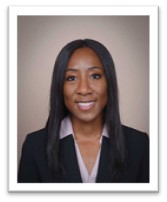 Hope Opara, MD Neurology
Hope Opara, MD Neurology
Dr. Hope Opara is a Clinical Assistant Professor of Neurology at the University of Washington and Harborview Medical Center. Dr. Opara is originally from Minnesota, where she completed medical school and residency before coming to the University of Washington for vascular neurology fellowship. As a stroke specialist, her interests include acute stroke intervention and management, primary and secondary stroke prevention, and use of transcranial doppler particularly for surveillance of cerebrovascular disease severity in sickle cell patients.
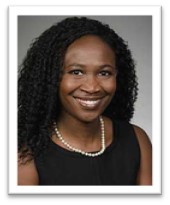 Lara Oyetunji, MD, MPH Cardiothoracic Surgery
Lara Oyetunji, MD, MPH Cardiothoracic Surgery
Dr. Oyetunji is a cardiothoracic surgeon who specializes in the treatment of all adult general cardiac surgical diseases. She serves as the section chief of Cardiac Surgery at the Veterans Administration Puget Sound and also sees patients at the UW Medical Center – Montlake campus. Oyetunji’s clinical interests include surgical and transcatheter approaches to the management of valvular heart diseases including aortic stenosis, mitral valve disease and hypertrophic cardiomyopathy. She has a keen interest in global surgery and seeks to develop academic partnerships toward sustainable surgical programs in low- and middle-income countries.
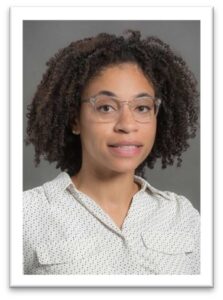 Tara Reid, MD Allergy and Infectious Diseases
Tara Reid, MD Allergy and Infectious Diseases
Dr. Tara Reid is an Acting Instructor of Infectious Diseases in the Department of Medicine at the University of Washington. Concurrent with her medical training, she studied the natural history and pathogenesis of the agent of syphilis, Treponema pallidum subsp. pallidum. Dr. Reid is passionate about educating people about preventing and treating sexually transmitted infections. To that end, she teaches in the UWSOM, cares for hospitalized and ambulatory patients. She additionally is advancing projects related to the understanding of T cell.
 Claudia Vásquez, PhD Biochemistry
Claudia Vásquez, PhD Biochemistry
Dr. Claudia Vásquez is an Assistant Professor in the Department of Biochemistry. She received a BS in Biology at Brandeis University. After completing her PhD in Biology at MIT, she moved to Stanford University to complete her postdoc. She started her lab at UW in January 2023. Her group’s research goal is to understand the molecular and physical rules that cells use to build functional organs. She believes that a productive laboratory environment is one that is truly welcoming and working towards the advancement of all individuals.
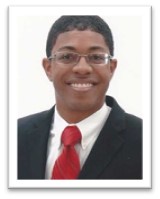 Patrick Wedgeworth, MD Clinical Informatics
Patrick Wedgeworth, MD Clinical Informatics
Dr. Patrick Wedgeworth is a graduate of the Clinical Informatics fellowship at University of Washington, and an Internal Medicine trained physician with a master’s degree in information systems management from Carnegie Mellon University. He has experience in Epic building, data analytics, patient care in underserved communities, and working in an advisory role for municipal public health initiatives. During residency, he worked on compiling data and deriving insights from his institution’s COVID-19 inpatient population and examined the impact of telehealth interventions during the pandemic. His work is currently focused at the intersection of clinical care, analytics and social determinants of health, and he has contributed to projects such as examining patient sentiment towards the use of NLP to collect social determinants data, and creating a data driven strategy for health systems to engage community based organizations. He is interested in the use of data analytics and clinical decision support to drive evidence-based, socially informed care that improves patient health and outcomes.
2022-2023 Cohort
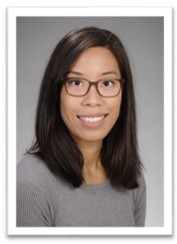
Crystal Brown, MD, MA Pulmonary, Critical Care, and Sleep Medicine
Dr. Crystal Brown is an Assistant Professor and physician-scientist in the Division of Pulmonary, Critical Care, and Sleep Medicine. Her research focuses on understanding how discrimination and other forms of racism affect communication and decision-making in racially marginalized patients with serious illness.
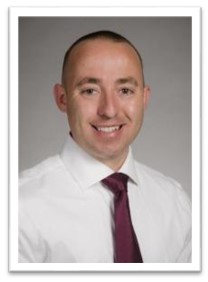
Germán Gornalusse, PhD, MS Obstetrics and Gynecology
Dr. Germán Gornalusse is an Acting Assistant Professor in the Department of Obstetrics and Gynecology at the UW and Affiliated Scientist in the Vaccine Infectious Disease Division (VIDD) at the Hutch. He is currently working with Dr. Florian Hladik’s group and is interested in the intersections between HIV-1 infection and latency, HIV (Human Immunodeficiency Virus) medications, opioids use and the immune response of the female reproductive tract.
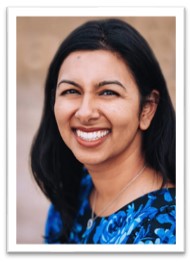
Nabiha Huq Saifee, MD, PhD Laboratory Medicine
Dr. Nabiha Huq Saifee is a Clinical Assistant Professor and clinical pathologist specializing in pediatric transfusion and coagulation with the aim to improve transfusion and anticoagulation management in pediatric patients via clinician education, quality improvement projects, assay development, and research studies. She is currently transfusion service medical director and apheresis service associate medical director at Seattle Children’s. Professionally, she enjoys teaching and guiding standardized evidence-based practices via local and national committee work and clinical research.
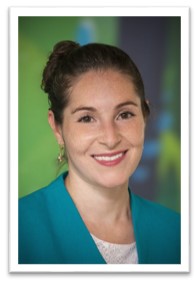
Victoria Lopez Konold, MD Infectious Disease and Virology
Dr. Victoria Lopez Konold is an Assistant Professor and pediatric Infectious Disease physician at Seattle Children’s Hospital. Dr. Konold’s research focuses on the intersection of informatics, quality improvement and antimicrobial stewardship. She serves as the Director of QAPI for the Division of Pediatric infectious Diseases, and as the Associate Medical Director of the Antimicrobial Stewardship Program at Seattle Children’s Hospital. In these roles she leverages the electronic health record to nudge provider behaviors toward guideline-centered care, and extracts data from the electronic health record to answer questions about quality and equity. She is interested in further developing her leadership skills, finding ways to incorporate tenets of DEI into her work, and connecting with other URM (Underrepresented Minorities) faculty, trainees and staff.

Nana Minkah, PhD Pediatric Global Infectious Disease Research
Dr. Minkah is a scientist at the Center for Global Infectious Disease Research at Seattle Children’s Research Institute and an Assistant Professor in the department of Pediatrics at the University of Washington. His research is primarily focused on hepatic immunity, and his team aims to utilize observations from our studies to develop immune-directed therapies against liver disease and hepatotropic infections. He believes that creating an environment that continuously combats racism, homophobia, sexism, transphobia, and other institutionalized and systemic oppressions is critical to the development of an inclusive, equitable and welcoming scientific community where each person feels valued and respected to do impactful work.

Elizabeth Nguyen, MD, PhD Pediatric Nephrology
Dr. Liz Nguyen is an Acting Assistant Professor of Nephrology with the University of Washington School of Medicine’s Department of Pediatrics. She started as a faculty member in the Division of Nephrology at Seattle Children’s Hospital in October 2021 after completing residency and fellowship. Dr. Nguyen oversees a lab at the Seattle Children’s Research Institute studying the genetic and epigenetic regulation of kidney repair after injury. She also loves seeing patients, and particularly enjoys working with kids who develop lifelong kidney disease at an early age and getting to be a part of team that teaches them how to manage and master their health.
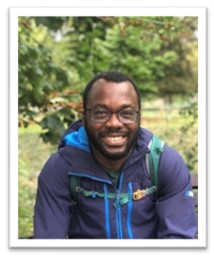
Ayokunle Olanrewaju, PhD Bioengineering
Dr. Ayokunle Olanrewaju aims to transform our approach to monitoring, treating, and preventing diseases by developing wearable autonomous devices that automate complex molecular tests. Ayokunle received BSc and MSc degrees in electrical engineering from the University of Alberta in Edmonton, Canada. After completing a PhD in Biological and Biomedical Engineering at McGill University in Montreal, Canada. He moved to Seattle for a postdoc in the Mechanical Engineering Department at UW. He started his lab as an Assistant Professor in the Mechanical Engineering and Bioengineering Departments at UW in January 2022. The Olanrewaju lab combines his expertise in autonomous microfluidics and drug activity assays to develop technologies for real-time disease monitoring at the point of need, whether in a doctor’s office or patient’s home. He is also committed to finding community-oriented and people-centered approaches that help to support those who are historically underrepresented and marginalized in academia and society.
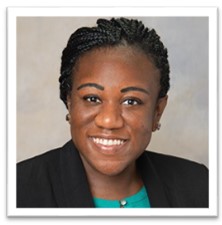
Jennifer Ray, MD Gastroenterology
Dr. Ray is a Gastroenterologist at Harborview Medical Center with a focus in motility disorders of the gastrointestinal tract. Dr. Ray is originally from Saint Louis, Missouri where she completed her medical training before joining University of Washington. Her passion is providing mentorship to trainees and enhancing the education of current and future physicians.
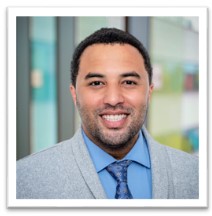
Hannibal Person, MD Pediatric Gastroenterology & Hepatology
Dr. Hannibal Person is an Assistant Professor of Pediatrics in the Division of Gastroenterology and Hepatology at Seattle Children’s Hospital and University of Washington. He has always been fascinated by the intersection of mental and physical health and completed training in pediatric medicine as well as general and child & adolescent psychiatry. His clinical passion is disorders of gut-brain interaction, and he is currently building the Gut-Brain Health Program, an interdisciplinary program for children with chronic gastrointestinal symptoms. His research passion is racial health equity, and he is currently completing projects related to mitigating provider racial bias via educational interventions.
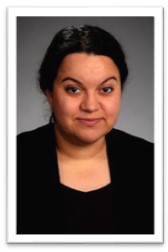
Mariya Sweetwyne, PhD Laboratory Medicine and Pathology
Dr. Mariya Sweetwyne is a Cell Biologist and Assistant Professor in the Department of Laboratory Medicine and Pathology at the UW School of Medicine. She grew up in the Pacific Northwest and earned a BS in Zoology and a BS in Cell and Molecular Biology from the University of Washington. Her laboratory focuses on basic and translational research to better understand how cellular aging in the kidney shapes the progression of kidney diseases. The goal of this research is to identify safe therapeutic targets to reduce kidney disease progression during late ages. Academically, she is working to foster a laboratory environment that welcomes mentees arriving from both traditional and less-conventional paths. Her goal is to support mentees in their own unique careers while also fostering the best science by building a creatively diverse research team.
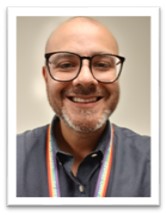
Luis Tulloch Palomino, MD Allergy and Infectious Diseases
Dr. Luis Tulloch-Palomino is a Clinical Assistant Professor and clinician-teacher in the Division of Allergy and Infectious Diseases. He is the lead of the Antimicrobial Stewardship and HIV Telehealth programs at the VA Puget Sound. In his current role he works to optimize antimicrobial use and increase access to HIV prevention and screening services for rural and other underserved Veterans.
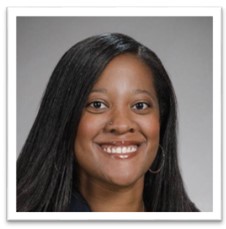
Porshia Underwood, MD Obstetrics and Gynecology
Dr. Porshia Underwood is a diligent and concerned OB-GYN. She practices medicine as a part of UW Medicine Women’s Health Care and offers OB-GYN consultations for various health issues. These include uterine fibroids, breast problems, vaginal irritation, hormonal imbalance, and menopause.
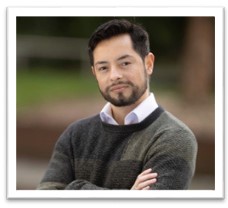
Oscar Vivas, PhD Physiology and Biophysics
Dr. Oscar Vivas is a Research Assistant Professor in the Department of Physiology and Biophysics. He is interested in understanding how aging alters the autonomic nervous system. His professional goal is to have a laboratory with an established culture based on peer mentoring, collaboration, and the general principle of helping others.
 Holly Hoa Vo, MD, MPH Pediatric Pulmonary
Holly Hoa Vo, MD, MPH Pediatric Pulmonary
Dr. Holly Hoa Vo is a new faculty member and a clinician, educator, and researcher. Prior to medical school she was a middle school math and science teacher for a few years in Brooklyn, NY. As she moved through medical school and subsequent teaching, she found ways to tie together her various interests in teaching, public health, and bioethics by being involved in various organizations and projects. Her interest in bioethics fits hand in glove with her professional background and strong interest in global health and healthcare equity.
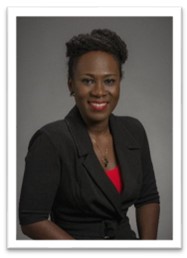
Afua Yorke, PhD Radiation Oncology
Dr. Yorke is an Assistant Professor in Medical Physics at the Department of Radiation Oncology. Her research focus is in Global Oncology working with radiotherapy centers in Lower-Middle Income countries investigating their medical physics quality assurance and management practices to improve patient care. She works with the Girls Excellence Movement in Ghana as the director of STEM to change the narrative and outlook for young girls. She is passionate about education, training, and mentoring.
